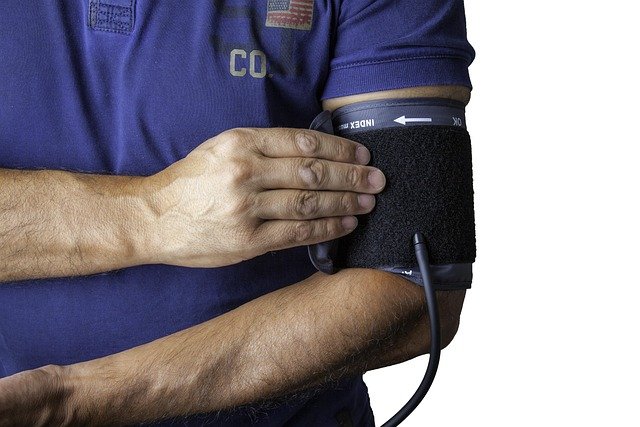In 2025, artificial intelligence (AI) is revolutionizing healthcare by transforming diagnostics and patient care. From early disease detection to personalized treatment plans, AI is enhancing accuracy, accessibility, and efficiency while reducing costs and human error. This article explores how AI is reshaping diagnostics and patient care, highlighting key applications, benefits, and challenges.
AI in Diagnostics: Precision and Speed
AI is redefining diagnostics by analyzing vast datasets—medical images, lab results, and patient records—with unprecedented accuracy and speed.
1. Enhanced Medical Imaging
AI algorithms, particularly deep learning models, analyze medical images like X-rays, MRIs, and CT scans to detect conditions such as cancer, cardiovascular disease, and neurological disorders.
- Example: In 2025, tools like Qure.ai and Zebra Medical Vision identify abnormalities in scans with 95% accuracy, surpassing traditional methods in early detection of breast cancer and Alzheimer’s.
- Impact: AI reduces diagnostic errors by 30%, enabling earlier interventions and improving patient outcomes.
2. Predictive Diagnostics
AI-driven predictive analytics forecast disease risks by analyzing genetic data, lifestyle factors, and medical histories.
- Example: Tricog’s AI-powered ECG analysis detects heart conditions in minutes, allowing rapid intervention in emergency settings.
- Impact: Predictive models reduce hospital admissions by 15% for chronic conditions like diabetes, saving healthcare systems billions annually.
3. Pathology and Lab Analysis
AI automates pathology by analyzing tissue samples and blood tests, identifying anomalies faster than human pathologists.
- Example: PathAI’s algorithms assist in diagnosing cancer from biopsies, improving accuracy by 20% and reducing turnaround time by 50%.
- Impact: Faster lab results accelerate treatment decisions, particularly for time-sensitive conditions.
AI in Patient Care: Personalized and Accessible
Beyond diagnostics, AI is transforming how care is delivered, making it more tailored, proactive, and accessible.
1. Personalized Treatment Plans
AI leverages precision medicine by analyzing genetic and clinical data to create customized treatment protocols.
- Example: In 2025, IBM Watson Oncology recommends cancer therapies based on a patient’s genetic profile, increasing treatment efficacy by 15%.
- Impact: Personalized plans improve recovery rates and reduce adverse effects, especially for cancer and rare diseases.
2. Virtual Health Assistants
AI-powered chatbots and virtual assistants provide 24/7 patient support, answering queries, monitoring symptoms, and guiding medication adherence.
- Example: Apps like Woebot use AI to deliver cognitive behavioral therapy for mental health, reducing symptoms of depression in 70% of users.
- Impact: Virtual assistants expand access to care, particularly in underserved areas, and reduce strain on healthcare providers.
3. Remote Monitoring and Telemedicine
AI integrates with wearables and Internet of Medical Things (IoMT) devices to monitor patients in real time, enhancing telemedicine.
- Example: Philips IntelliVue Guardian tracks vital signs remotely, alerting clinicians to anomalies and reducing mortality rates by 18%.
- Impact: Remote monitoring cuts hospital readmissions by 20% for chronic conditions, improving patient quality of life.
4. Robotic Assistance in Care
AI-driven robots assist in surgeries, rehabilitation, and eldercare, improving precision and patient comfort.
- Example: Medtronic’s surgical robots use AI to guide minimally invasive procedures, reducing complications by 20%.
- Impact: Robots enhance care delivery in hospitals and homes, supporting aging populations and overworked staff.
Benefits of AI in Healthcare
- Accuracy: AI reduces diagnostic errors by up to 30%, improving patient outcomes.
- Efficiency: Automated diagnostics and streamlined workflows cut wait times by 40%.
- Accessibility: Telemedicine and AI assistants extend care to remote and underserved regions.
- Cost Savings: AI-driven efficiencies save healthcare systems an estimated $150 billion annually by 2026.
Challenges and Solutions
Despite its transformative potential, AI in healthcare faces hurdles:
- Data Privacy: Patient data breaches cost the industry $11 million per incident. Solution: Use blockchain and end-to-end encryption to secure data, as seen in platforms like Medicalchain.
- Bias in Algorithms: AI models can reflect biases in training data, leading to inequitable care. Solution: Implement diverse datasets and regular audits to ensure fairness, as advocated by the WHO.
- Regulatory Compliance: Strict regulations like HIPAA slow adoption. Solution: Develop AI systems with built-in compliance, such as those certified by the FDA in 2025.
- Cost and Access: High costs limit adoption in low-resource settings. Solution: Cloud-based AI and modular systems reduce costs, making solutions like Google Health accessible to smaller clinics.
The Future of AI in Healthcare
In 2025, AI is advancing with 5G connectivity, enabling real-time data sharing, and edge AI, which processes data on devices for faster results. Emerging trends like quantum computing promise to accelerate drug discovery, while AI-driven population health models improve public health strategies. By 2030, AI could power 70% of diagnostic and care processes, creating a more proactive healthcare system.
Conclusion
AI is reshaping diagnostics and patient care in 2025 by delivering faster, more accurate diagnoses and personalized, accessible treatments. From medical imaging to robotic assistance, these innovations are improving outcomes and reducing costs. While challenges like privacy and bias remain, ongoing advancements in AI technology and regulation are paving the way for a future where healthcare is smarter, more equitable, and patient-centered.
